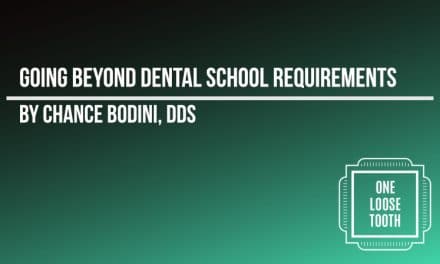In my last post I mentioned working interviews. Working interviews for dentists are difficult for both parties as neither knows what to expect. Dental working interviews typically last one day, but can be scheduled for several days or just part of a day.
Generally, the interviewee is compensated for her time or production during the interview, however this is not always the case. As awkward as it can be, you need to become comfortable talking about money with your potential employers, and the details for payment should be discussed prior to scheduling the working interview.
If you touch a patient, it’s your responsibility. You are working under your license and you will be held liable for the diagnosis, documentation, and management of the case regardless of your role in the initial workup and subsequent follow-up. It is this exposure to liability that warrants payment for all services rendered and why you should pause to accept a working interview with the knowledge that compensation may not be provided.
These interviews vary greatly depending on the type of practice you have secured an interview with. Here are some questions your should ask after setting a date.
How many columns am I expected to run?Â
New grads, a column is one column on the schedule and typically represents 1 operatory. For example, a 3 chair office has the capacity to run 3 columns. Likewise, a 7 chair office has the capacity to run 7 columns. Most established and experienced dentist run 2 to 3 columns, and hygienists usually run 1 column. As a new grad, I would advise you to not take a job and decline the working interview if the office is expecting you to run more than 3 columns. Any office asking a new grad to run 3 or more columns from the get-go is a “mill” and you may find it difficult to enjoy practicing dentistry in this type of environment.
Will the owner be present?
If the owner will not be present at the working interview, decline the interview and the position. If the owner of the office does not care enough about her patients to oversee the quality of treatment provided by a potential new hire, you should seek employment elsewhere.
What procedures are scheduled?
If management hesitates to tell you what is on the schedule, you should be cautious about accepting the interview. In my opinion, working interviews should be limited to exams, hygiene, routine operative, and simple extractions.




